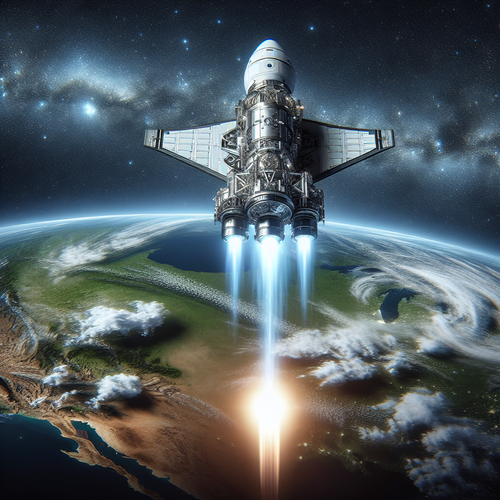
The Future of Space Technology: Innovations to Watch
The Future of Space Technology: Innovations to Watch
As we venture deeper into the cosmos, space technology continues to evolve at a remarkable pace. Innovations in rocket design, satellite systems, and exploration methods are redefining our understanding and possibilities beyond Earth. This article will highlight some of the most promising developments in space technology that could shape our future.
Reusable Rocket Technology
One of the most significant advancements in recent years is the development of reusable rockets. SpaceX has pioneered this technology with its Falcon 9 rocket, successfully landing and reusing boosters multiple times.
- Cost Efficiency: Reusable rockets significantly reduce launch costs, making space more accessible for various missions.
- Increased Frequency: With the ability to reuse components, missions can be launched more frequently, allowing for a greater volume of scientific research and exploration.
Other companies, like Blue Origin, are also investing in reusable technology, indicating a trend that is likely to continue in the coming years.
Advancements in Satellite Technology
Satellite technology is another area witnessing rapid advancements. New materials and manufacturing techniques are enabling the creation of smaller, more efficient satellites.
- Small Satellites: Also known as smallsats or CubeSats, these devices are cheaper to produce and can be launched in groups to create constellations. They are being used for Earth observation, telecommunications, and scientific research.
- Enhanced Sensors: New sensors are being developed to improve data accuracy and transmission rates, enabling better monitoring of climate change, natural disasters, and urban development.
As satellite technology continues to evolve, it will play a crucial role in bridging the gap between earthbound challenges and solutions derived from space data.
AI and Automation in Space Exploration
Artificial intelligence (AI) is transforming various aspects of space exploration. From autonomous spacecraft navigation to real-time data analysis, AI’s role is becoming indispensable.
- Autonomous Systems: AI-powered systems can operate without human intervention, which is vital for long-duration space missions. These systems can analyze environmental data, make decisions, and ensure safety.
- Data Processing: AI can sift through massive datasets generated by spacecraft to identify patterns and insights quickly, enhancing our understanding of space phenomena.
NASA’s Perseverance Rover utilizes AI to analyze Mars’s surface, guiding its exploration efforts effectively. This integration of AI ensures that we maximize our research capabilities.
Commercial Space Travel and Tourism
The commercialization of space travel is becoming a reality with companies like SpaceX, Blue Origin, and Virgin Galactic leading the way. These companies aim to make space tourism accessible to the public.
- Suborbital Flights: Companies like Blue Origin offer short trips to the edge of space, allowing tourists to experience weightlessness and breathtaking views of Earth.
- Orbital Hotels: Future projects aim to establish hotels in low Earth orbit, providing vacation experiences unlike any on the planet.
The rise of commercial spaceflight promises to redefine our relationship with space and could inspire a new generation of explorers.
Conclusion
The future of space technology is bright with endless possibilities. As advancements continue in various sectors, the synergy of innovation and exploration will lead to exciting discoveries. To stay updated on technology trends, explore our earlier post on The Rise of AI-Driven Cybersecurity Solutions. The universe awaits us, and the next strides in space technology will unveil its many mysteries.













